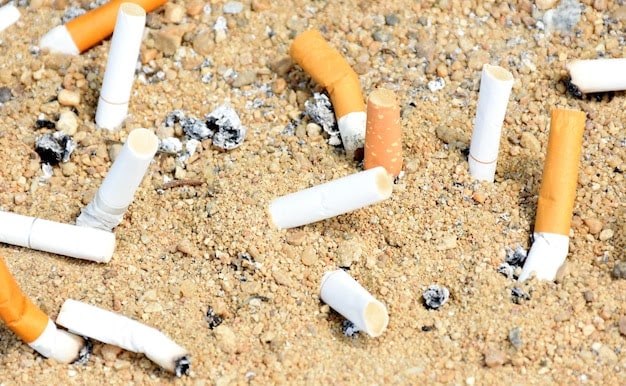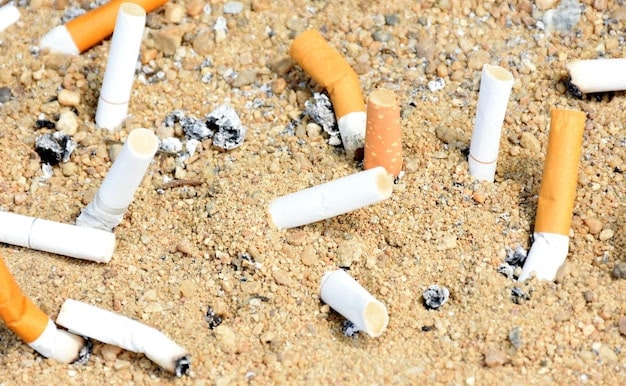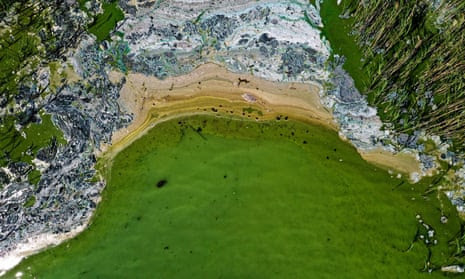
Every year, 7.7 billion cigarette butts are discarded in public spaces. A large proportion of these end up in wastewater and then in the oceans. An eco-organization is now in charge of processing this particularly polluting waste. But our behavior can and must also change the situation.
According to a study commissioned in 2020 by the
Alcome eco-organization, only 1 out of every two cigarette butts is disposed of in public spaces. The rest are unfortunately discarded in the street (53%), in sewage drains (25%) and even in green spaces (22%).

A cigarette butt may seem like harmless pollution to some. But it’s not! They take over a decade to decompose completely. On contact with water, they also release particularly toxic substances (including arsenic and ammonia) and even fragment into micro-plastics, wreaking havoc on ecosystems and biodiversity. For example, while a cigarette butt alone can pollute 500 liters of water, it is estimated that it accounts for almost 40% of the waste present in the Mediterranean Sea.
Why do smokers throw their cigarette butts on the ground?
Lack of impact awareness? Out of convenience? Because there aren’t enough garbage cans?
Alcome‘s study provides some answers:
90% of those interviewed know that cigarette butts thrown on the ground pollute. 80% of them consider that the problem of cigarette butts on the street can be solved:
the installation of litter garbage cans and ashtrays in public spaces has a major influence on the proportion of smokers who adopt the right gestures: with one litter garbage can per 100 m2, the rate of compliant use improves significantly;
more is littered on vacation: while the average is 1 cigarette butt per 4 m2 of public space, tourist sites top the list with 0.76 butts per m2.

Approved by the public authorities in July 2021 for a period of 6 years, the Alcome eco-organization is now responsible for collecting eco-contributions from tobacco manufacturers and redistributing them to local authorities. The latter will thus receive 80 million euros a year to finance the collection and cleaning of cigarette butts. Other measures include
the distribution of pocket and street ashtrays to prevent cigarette butts from being thrown on the ground:
funding awareness-raising campaigns on the environmental impact of cigarette butts:
Funding research and development projects into innovative solutions for collecting and recycling cigarette butts.
The aim is clear: to reduce by at least




